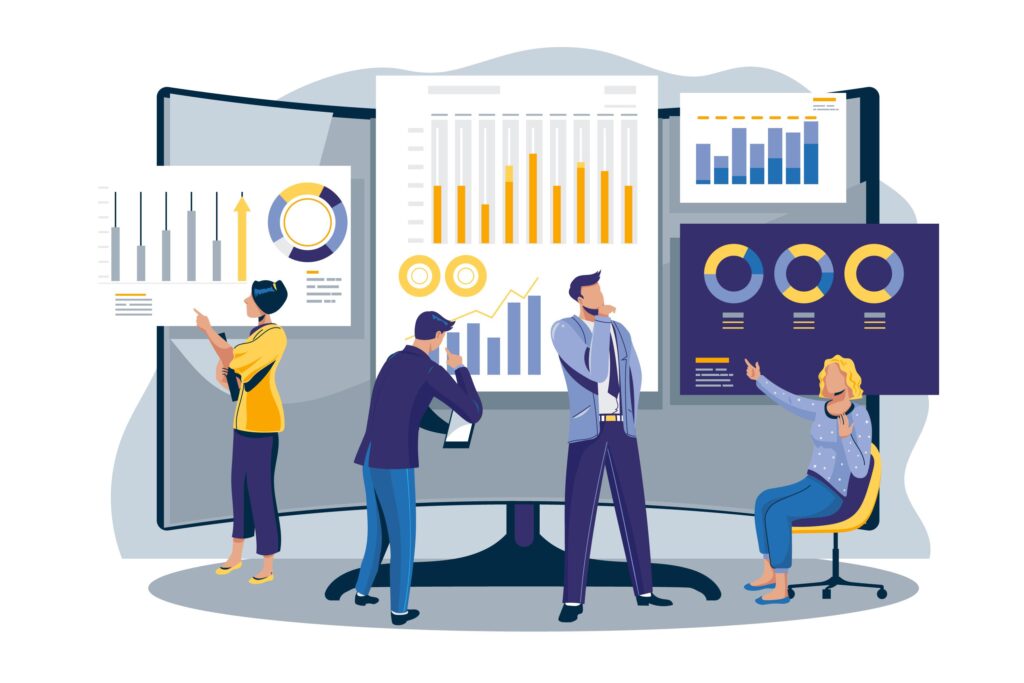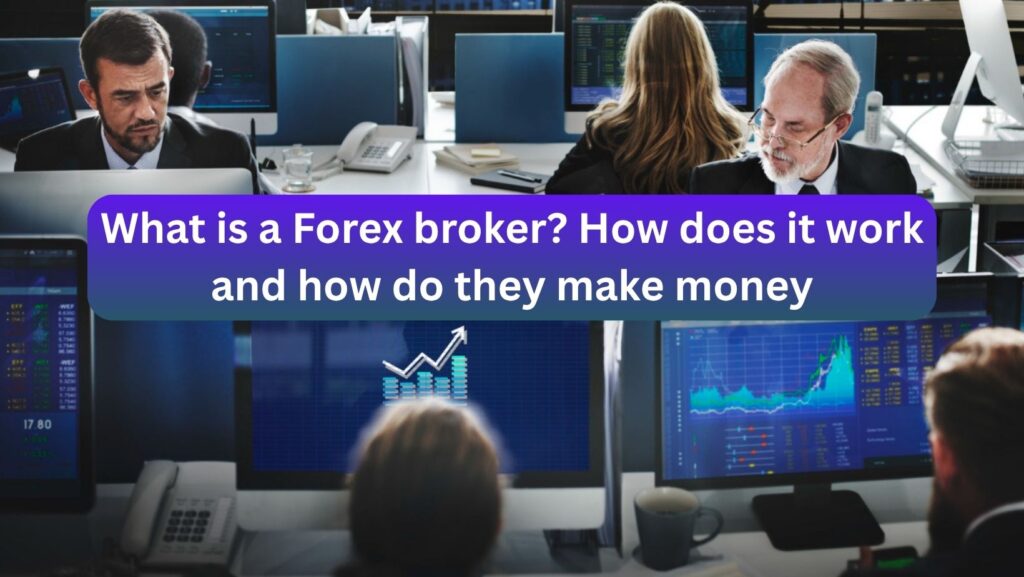If you want to start forex trading, you must have heard the name “Forex broker”. But often beginners get confused about what is the real role of a broker and how does he earn money? Let’s understand in detail in this blog.
- What is a forex broker
- How does it work
- How does a broker generate income
- And what type of broker should you work with
We will understand all this in simple Language

What is a Forex broker?
A forex broker is a middleman who gives traders (like you) access to the currency market. You cannot trade in the direct forex market – you need a broker through whom you can buy or sell.
Imagine a broker is an online platform from where you can trade currency pairs like EUR/USD, XAU/USD.
Example:
If you think USD will strengthen and GBP will weaken, you will sell GBP/USD. You make these trades through a broker’s platform, such as:
- Exness
- Ventage
- IC Markets
- XM
How does a forex broker work?
A forex broker has a trading platform (such as MT5 or their own app) from which you can:
- View real-time price movements on currency pairs
- Place buy/sell orders
- Use charts and indicators
- Track your profit/loss
The broker matches you with liquidity providers (banks, institutions) in the market or becomes a counterparty itself (more on this in the next section).
Types of Forex Brokers
Forex brokers are mainly divided into categories:
1. Dealing Desk Brokers (Market Makers)
- These brokers trade against you
- If you buy, you sell
- They quote prices themselves, and provide liquidity
Pros:
✔️ Fast execution
✔️ Fixed spreads
Cons:
❌ Conflict of interest
❌ Prices can be manipulated
2. No Dealing Desk Brokers (NDD)
These have two sub-types:
a) STP (Straight Through Processing)
- Your orders are forwarded directly to liquidity providers
- The broker itself does not take part in the market
b) ECN (Electronic communication network)
- This broker matches the best price from multiple liquidity providers
- You deal directly in the market
Pros:
✔️ Transparent pricing
✔️ Tight spreads
Cons:
❌ High deposit requirement
❌ Commissions may be charged
How does a forex broker make money?
Now the most important question – how does a broker make money?
1. Spread
Spread = Bid price – Ask price
Example: EUR/USD Bid = 1.3200, Ask = 1.3204 → Spread = 4 pips
When you trade, the broker earns this spread
2. Commission
Certain ECN brokers charge a fixed commission on each trade
Example: $7 per lot
3. Swap/Overnight Fees
- If you keep the trade open overnight, there is an interest or swap fee
- The broker accounts for this
4. Other Fees
- Withdrawal Fees
- Inactivity Fees
- Currency Conversion Fees
⚠️ Important points while choosing a broker
Whenever you select a broker, keep these points in mind:
1. Regulation:
Regulating the broker is necessary through a reputable institute
Example:
ASIC(Australia), FCA(UK), CySEC(Europe)
2. Spreads and Commissions:
Follow brokers with tight spreads and low commissions Choose
3. Execution Speed:
Fast execution is important for scalpers
4. Deposit/Withdrawal Options:
Are local payment methods available Yes No, check
5. Customer Support:
Is there support in regional language?
6. Demo Account:
Try demo account first, then open real account
FAQ
Q1. Is trading possible without a forex broker?
Answer: No. You will always get high forex market access through a broker.
Q2. Do brokers ever commit fraud?
Answer: Yes, there is a risk of fraud from unregulated brokers. Always choose a regulated broker.

Conclusion
Forex broker is your gateway to the global currency market. But when choosing a broker, you need to understand:
- How it operates
- What its model is (STP/ECN or Market Maker)
- And from what date it makes money
A broker’s job is not just to execute trades – its interface, support and transparency also matter.
The more transparent your broker is, the better your trading experience will be.
So if you liked this blog then follow and share www.growthlikej.com for similar informative knowledge blogs.

